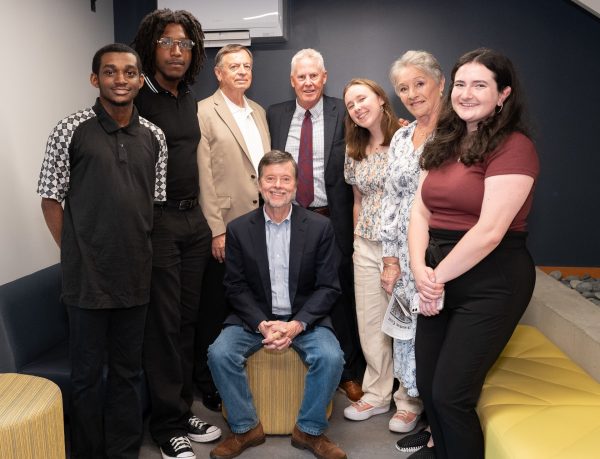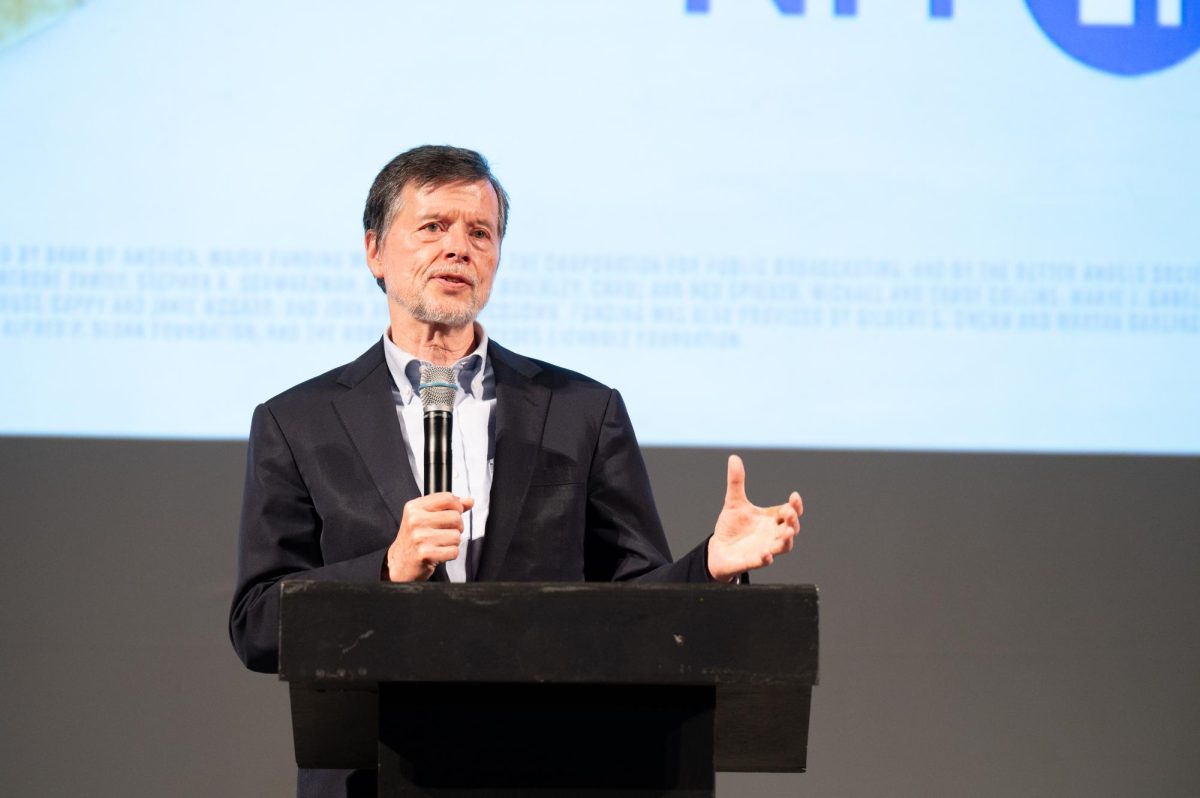
On Thursday, September 12th, Saint Anselm College hosted an event partnered with New
Hampshire PBS, New Hampshire Humanities, as a fundraiser for the BIG THOUGHT series.
This event was a 35-minute first look at Ken Burns’ new documentary called “Leonardo da
Vinci: Inside the Mind of a Genius.” Directly before the premiere was an interview with Ken
Burns, with questions by Saint Anselm professor Katherine Bentz and biomedical artist Amber
Nicole Cannan. According to Dr. Gary Bouchard of The Gregory J. Grappone Humanities
Institute, this film premiere fits with the theme of this year’s BIG THOUGHT series, which
examines “the Presence of the Past, how the past informs and affects the lives we live personally and
nationally.”
Celebrated director and filmmaker Ken Burns is a sponsor of the Humanities Institute and whose relationship with the Grappones helped to bring this event to Saint Anselm College. Dr. Bouchard says this event “invites us to consider the mind of two geniuses: the greatest mind and imagination of the European Renaissance and the most prolific and impactful storyteller of our own age. It also brought to our campus someone who is the absolute embodiment of the humanities in his life and work.”
Michael Haley Goldman, an executive director at New Hampshire Humanities who helped organize this event, touched on the importance of community organizations working with the college. He said, “Partnerships create better humanities and art programming that reach a broader population in the Granite State.” Saint Anselm College is dedicated not only to providing growth and learning but also to providing the experience of a liberal arts education. Goldman said that colleges “are obliged to expose students to the many ways that humans understand their world and to engage them in that dialogue.” Dr. Bouchard shared this sentiment about the importance of humanities and said that Conversatio students “are asked to consider, among other things, what their lives would be like with a complete absence of beauty or art?
The exaggerated and often false distinction between science and art is also something we all need to reconsider. Leonardo da Vinci really exploded this division because in him we see that the greatest scientist of the Renaissance was an artist, and arguably the greatest artist was a scientist. Professor Bentz remarked that Leonardo da Vinci is “an incredible model for anyone studying at a liberal arts college. He found everything in the world endlessly fascinating and worth studying and knowing— he didn’t believe in separating the arts from science, engineering, or philosophy. He believed in the value of knowledge for knowledge’s sake, that knowledge and the pursuit of it makes us uniquely human.”
Cannan, who works in the biomedical field as an artist, said that in “medical illustration, Leonardo da Vinci is [the] primary forebear.” Da Vinci’s influence on the humanities is far-reaching, and Burns’ film seeks to explore his genius. Cannan said, “we often get focused on our single area of study and forget that a wide base of knowledge lends to better products in our careers. This documentary really reveals why that is.” Though Ken Burns is a widely known American filmmaker, those involved in the event all had nice things to say about his character. Cannan, who co-interviewed Burns, said, “my first moment meeting him was unplanned in the auditorium. I wasn’t ready at all, so I had a giddy face and knotted tongue. Ken Burns is used to that and managed it gracefully.”
The humanities explore the relationship between sciences and the arts, and Saint Anselm College consistently dedicates itself to this cause. Goldman says, “Leonardo represents the ideal subject of humanities study. Though usually known as an artist, Burns and company show Leonardo to be a brilliant and challenging thinker and a model of the multifaceted, well rounded thinking inspired by a liberal arts education.”
Ken Burns’ film “Leonardo da Vinci: Inside the Mind of a Genius” will be broadcast on the PBS station on November 18th and 19th. The total length of the documentary is twice that of a regular film, and according to Bentz, “the time flies — I’ve seen the whole film and loved every moment!” Not only is this film the first of Burns’ filmography to discuss a topic outside an American context, but Dr Bouchard says people “should only be interested in the new documentary if they are interested in life itself.”


